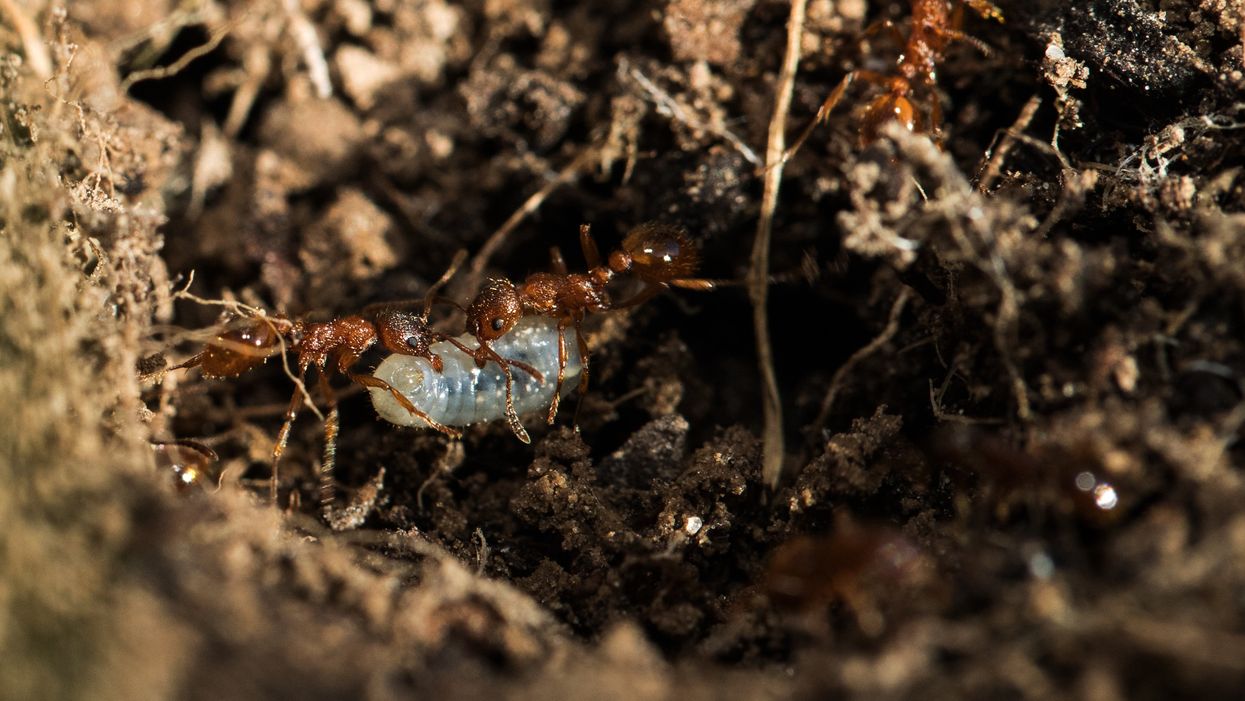
Photo by JOEL SAGET/AFP via Getty Images

No more slave-maker ants? Gypsy moths?
Some scholars aren't happy with the "problematic" insect and animal names, and are calling for a large-scale reform.
"There is no room for racism in science," University of Arizona Ph.D. candidate Earyn McGee — one of the scholars calling for reform — tells The College Fix in a statement.
McGee, also a herpetologist, also says that she is firmly against honoring "racist people or racial slurs by naming animals after them."
McGee adds she has high hopes for a new name for the Yarrow's Spiny Lizard — since celebrated ornithologist and herpetologist H.C. Yarrow was a Union soldier during the Civil War as well as a eugenicist.
"There is no amount of scientific contributions that can make unabashed racism and bigotry OK," she adds.
She insists that while some questionable people have, indeed, made scientific contributions, their names and discoveries should be discussed with full disclosure into their past actions.
"If you must acknowledge them, you can say something like 'X person discovered X thing, however it is important to note they also did this bigoted thing and that type of behavior is unacceptable for scientists," she said.
The organization reports that some of the more concerning names include the slave-maker ant, the rape bug, the gypsy moth, and even more.
The Fix points out that in July, the American Association for the Advancement of Science shared a comprehensive list featuring at least 60 names that scholars say should be changed to something more inclusive and less offensive.
One questionable term is "hottentot" — or its Latin form, "hottentatus" — as the report's authors insist it is a "racial slur used by white people, directed toward indigenous Africans during apartheid."
The setophaga townsendi — or the Townsend's Warbler, a bird — is also problematic because "[Ornithologist] John Townsend was terrible."
The Fix points out that the name is especially nefarious, as Townsend studied bird species in Oregon, and would often "rely on Native Americans to capture his specimens."
"During his studies," the outlet continued, "he would describe cultural differences and steal skulls from Indian graves."
Other offending names include the Large Faggotworm, though its name is derived from "its definition as a bundle of sticks or twigs bound together as fuel."
You can read some of the names and why they are offensive in the graphics below.
Problematic Common Names by The College Fix on Scribd
Problematic Common Names by The College Fix on Scribd
McGee told Science magazine in July that a lizard-catching tactic in particular gives her pause for concern.
She said that the term "noosing," which refers to lassoing a lizard before catching it, is "unnerving" to her as a black woman.
The magazine writes, "McGee, a herpetologist, studies the habitat and behavior of Yarrow's spiny lizard, a reptile native to the southwestern United States. The University of Arizona graduate student and her colleagues regularly pack their things—boots, pens, notebooks, trail mix—and set off into the nearby Chiricahua Mountains. At their field site, they start an activity with a name that evokes a racist past: noosing."
"'Noosing,'" the magazine continues, "is a long-standing term used by herpetologists for catching lizards."
"But for McGee, a Black scientist, the term is unnerving, calling to mind horrific lynchings of Black people by white people in the United States in the 19th and 20th centuries," the article explains.
"Being the only Black person out in the middle of nowhere with a bunch of white people talking about noosing things is unsettling," she says, and insists her colleagues change the term to "lassoing" instead.